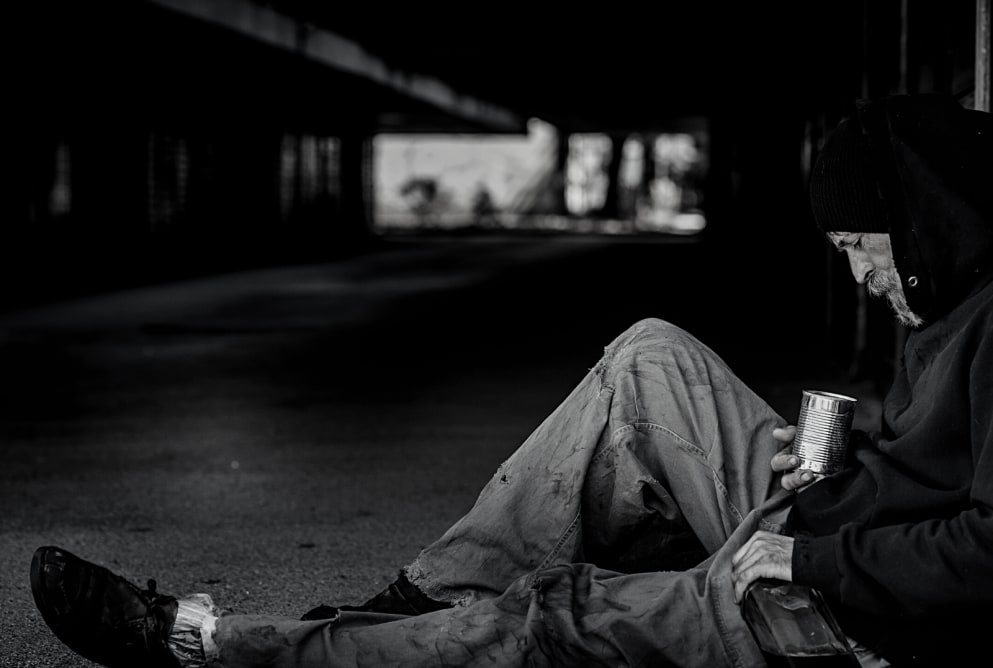When someone doesn’t have a safe and secure place to call home, their physical and mental health is one of the first things to suffer.
Many people facing homelessness are dealing with health worries without access to proper treatment. Any existing problems are exacerbated by stress and instability.
Here are some of the main issues surrounding homelessness and health.
Staying clean
How do people without a fixed address take care of their hygiene? The answer is that it’s challenging.
Many of the people we support have little or no access to clean water and can go without a bath or shower for weeks or months. Often, they’ll resort to using sinks in public toilets to clean themselves or finding local gyms, leisure centres and temporary accommodation which will allow them to shower.
These struggles are particularly difficult for people with periods when it comes to menstrual hygiene. They can face tough decisions such as choosing between food and sanitary products. Without tampons or pads, they have to make do with anything they can find, leaving them prone to infections.
Finding food
When people are living on the streets, food can often be dependent on the donations of passers-by. As you can imagine, this leaves little to no choice over what they eat.
Nutrition will usually fall by the wayside - substituted for low-cost options or whatever strangers give them.
Although most cities have soup kitchens and food banks, these aren’t always accessible due to long travel distances. If a person facing homelessness is already unwell, they might be unable to make the journey to access food support. The subsequent lack of nutritious food will, in turn, make it more difficult for them to recover from illness.
It’s a vicious cycle that can feel impossible to break free from.
Medical care
Data from 2014 shows that approximately 73% of people faced with homelessness experience physical health problems.
It’s difficult to access medical care when you have no fixed address. People experiencing homelessness often find themselves unable to register with a GP, and even if they manage to get an appointment, they’ll probably struggle to pay for a prescription.
If a person without shelter becomes ill, they can be sleeping out in the elements for days or weeks at a time. This can leave them more susceptible to things like malnutrition and the muscular-skeletal problems that come as a consequence. Not to mention skin problems due to lack of access to basic hygiene and various respiratory diseases that come from lack of shelter.
Mental health challenges
People with mental health difficulties are 50% more likely to spend over a year sleeping rough. This can happen either as a result of homelessness, or be one of its causes.
Those who experience homelessness might have left behind difficult life circumstances, such as broken relationships, loss of jobs, eviction or even domestic abuse. They’re often unable to access mental health services, leaving them feeling alone and abandoned.
The stresses of struggling daily for food and shelter can really affect a person’s mental wellbeing. When the only source of conversation that can be had is through begging for money or food, it’s easy for someone’s self-esteem to hit a new low. They may even begin to feel worthless.
Team Simon’s outreach workers are dedicated to connecting with those facing homelessness in local areas. We provide practical and emotional support for people going through homelessness, working together to get them off the streets and into stable housing.
The longer people are living in extreme poverty, the more likely they are to suffer from long-term health problems. Let’s break the cycle.
